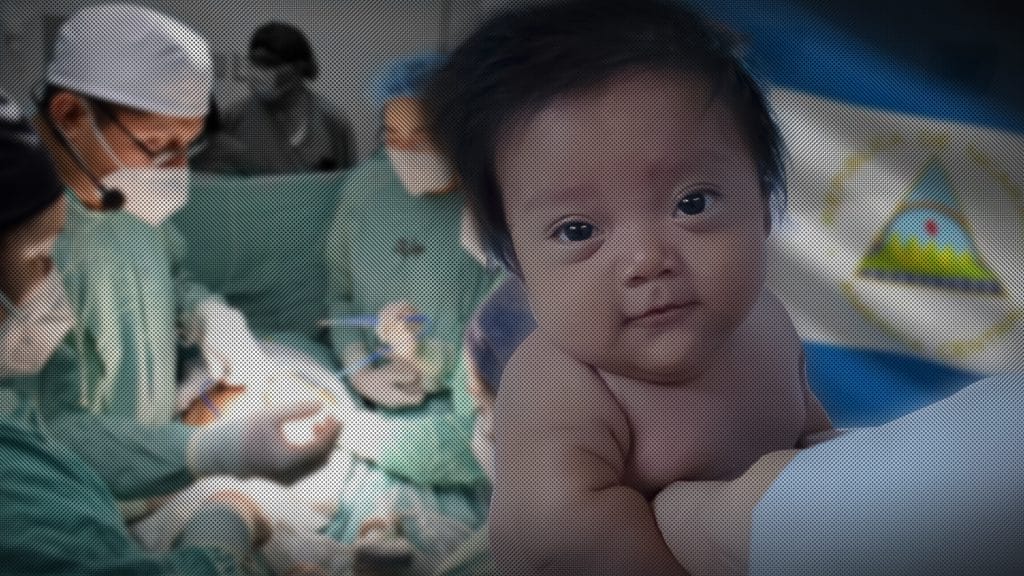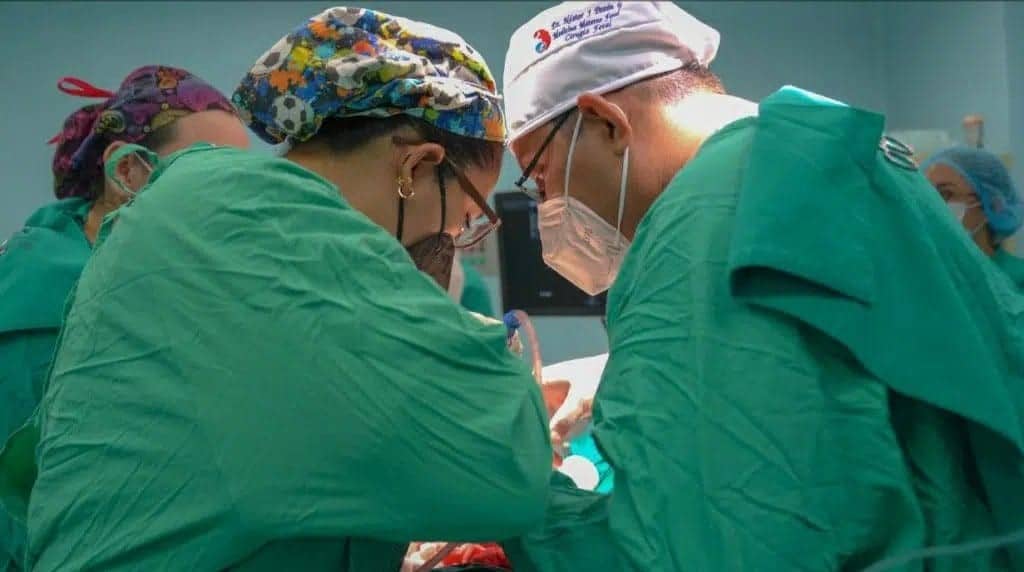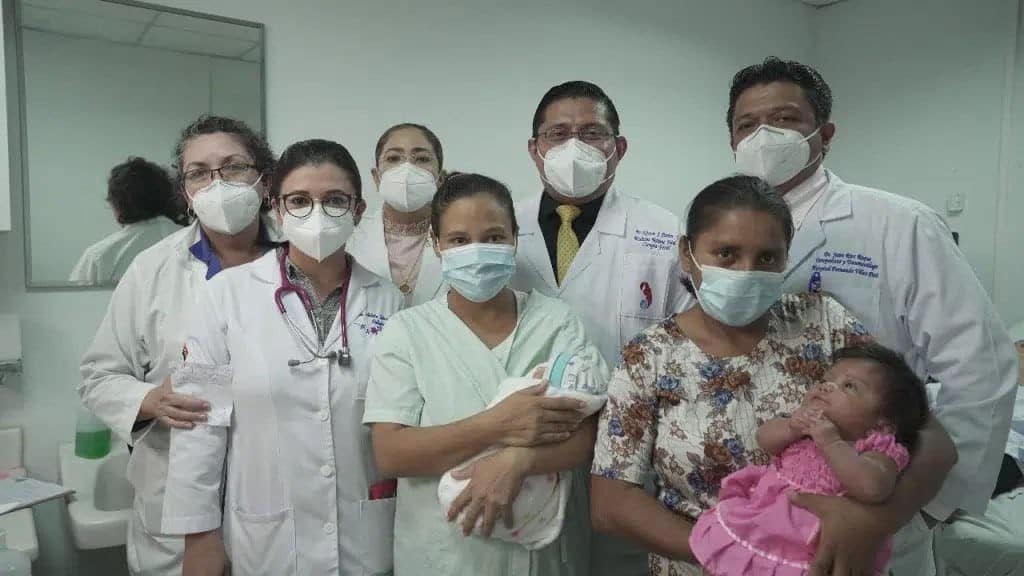
More than a hundred and a half babies have been born in better health conditions in Nicaragua, after the development of free maternal-fetal surgeries in the country, between 2021 and the first months of 2023, an unprecedented event in Latin America.
Specialist surgeons in this medical area have not paused in Nicaragua. To date and in record time, 168 intrauterine fetal procedures and 94 connatal surgeries have been registered, according to the Nicaraguan Ministry of Health; which saves life even before birth.
The Government of Nicaragua, through the Ministry of Health, has guaranteed investment both in the scientific preparation of its doctors and in the technical development and hospital infrastructure in the country.
Free maternal and fetal surgeries in Nicaragua
The first Nicaraguan neurosurgeon, María Carolina Cantarero, who is part of the multidisciplinary team responsible for carrying out fetal interventions, highlighted that maternal-fetal surgery, especially intrauterine surgery, is one of the greatest advances of the last century.
Dr. Cantarero highlighted the importance of these procedures being carried out completely free of charge in Nicaragua, under the Nicaraguan Public Health System. Surgery in other countries costs around 30,000 dollars, because it is not only the equipment, but also the material used, including ultrasound before, during and after, she assured.
“It is a milestone, it is historic and it is an incredible technical scientific advance, both for me as a pediatric neurosurgeon, and for the entire team,” said Cantarero.
Fetal surgeries to reduce spina bifida damage
The first fetal surgeon in Central America, the Nicaraguan, Néstor Pavón, who also heads the specialist team, explains that among the conditions to be treated with fetal operations is spina bifida, «a defect in the neural tube that develops in the first three months of gestation. It is a multifactorial alteration”.
In addition, the specialist explained that «once the neural tube develops, if it is exposed or open, it creates a malformation that will impact the quality of life and the survival of the newborn.»

Pavón explained that between 15 to 20% of newborns suffering from spina bifida may die from serious infections of the central nervous system, from seizures or, failing that, be left with serious aftermaths: Difficulty controlling sphincters, that is, they urinate or defecate; they cannot walk, they are totally bedridden, they have difficult learning processes and to move themselves.
The intrauterine intervention that in 2012 in Mexico began to have its peak, reduces these complications.
Surgical procedure inside the uterus
“The pregnant patient undergoes surgery by a specialist team, where the abdominal wall is approached, the uterus is opened, the defect at the level of the spine is exposed, the defect is repaired with a conventional technique already described, it closes the uterus again, the abdominal wall is closed and the patient continues her pregnancy until the end of the pregnancy”, explained the Nicaraguan fetal surgeon.
Likewise, Dr. Cantarero explained that it is about reconstructing what the neural tube is, that is, «the spinal cord, part of the spinal cord that did not finish forming during the maternal womb and introducing the nerve roots that are found at the outside, inside that spinal canal as well.”

Pavón added that with this procedure, an important correction of the defect is achieved and in most cases these babies do not require any intervention at birth, with the primary objective being that these babies are born operated and with the least amount of complications.
Reduction of serious complications
Both medical specialists from the Central American nation stressed that an important complication that is reduced with fetal surgery is the placement of a valve in the head, which causes hydrocephalus in babies. Hydrocephalus is reduced by up to 70%, with the correction of intrauterine spina bifida.
Within Fetal Surgery, 11 procedures are established, and include lung injuries, kidney injuries, heart problems, fetal tumors and amniotic bands.
Surgeons have emphasized that there is a reduction of up to 70% in mortality and morbidity with these medical procedures and the health burden is also reduced, since an intrauterine surgical event, despite the high costs of equipment, medications, Periodic replacement materials are always less expensive than a rehabilitation in a newborn for three or five years of follow-up.
In this sense, Cantarero stressed that it is essential that since these children are born and go home with their mothers, despite the fact that they have already been operated on, follow-up by a multidisciplinary team that is available in Nicaragua, made up of specialists and sub specialists such as orthopedists, rehabilitators and early stimulators.
It may interest you: Cancer vaccines and their effectiveness
The Nicaraguan Public Health System, since 2021, began to lead fetal surgical procedures in Central America, consolidating not only as the first country in the region to perform them, but also guaranteeing them free of charge.





